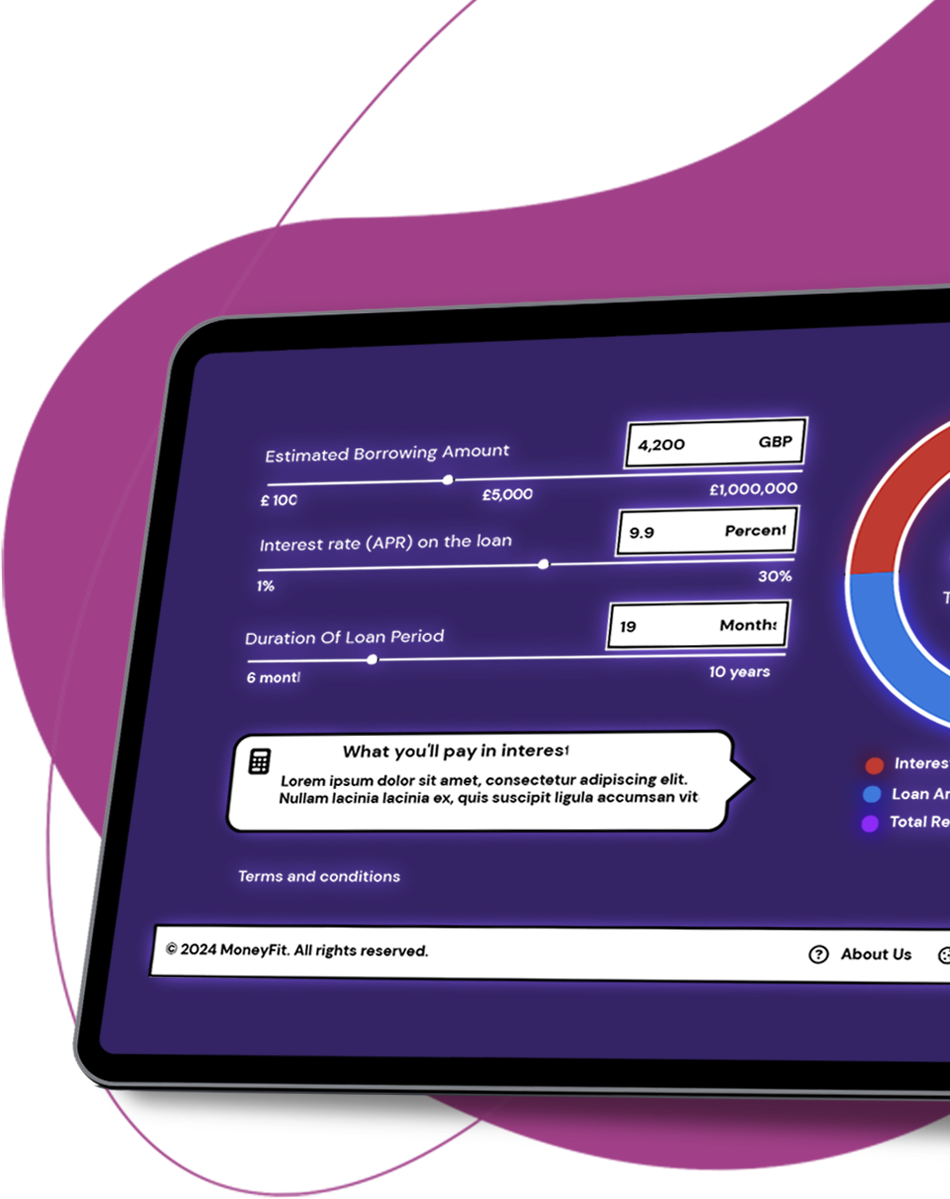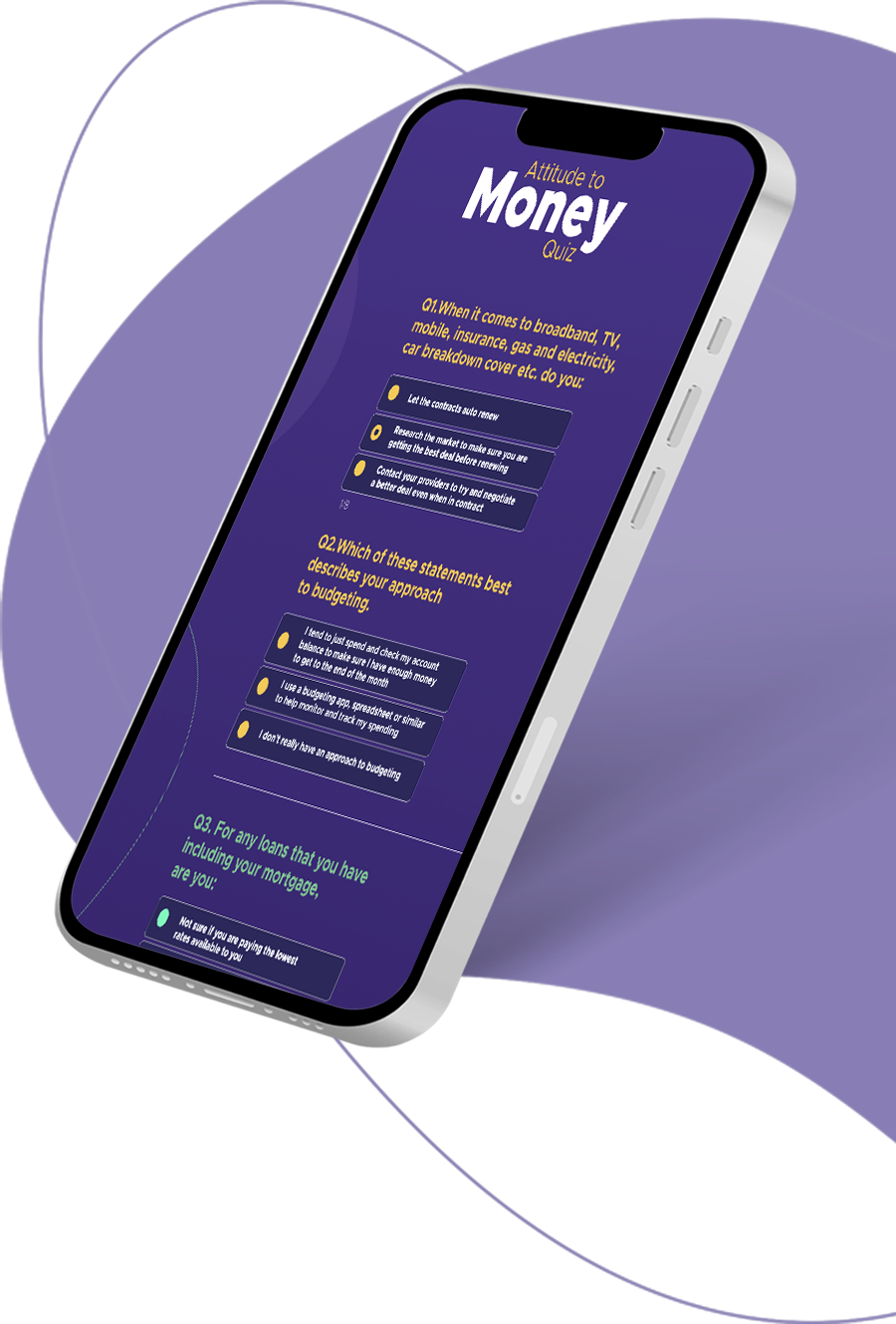MoneyFit Exercises
Need to stretch your money further?
Strengthen your credit score?
Work out a plan for your retirement?

NB. The following exercises are for educational purposes only and not financial advice.
Do you know your Money Personality?
Here are some exercises designed to help improve your financial fitness. Filter on exercises based on Money Topics and Money Personality Type and work through the exercises at your own pace. To make the most of the MoneyFit Gym, take the Money Personality Quiz to follow a personalised exercise plan.
Everyday Budgeting
Are there any direct debits or standing orders that you’re paying that you no longer need? Gym memberships, music subscriptions or magazine subscriptions? Log into your bank account(s), review your direct debits and standing orders and cancel any you don’t need.
For more tips on doing a direct debit detox, visit Money Saving Expert
In a spreadsheet or table, make a list of all of the services you pay for regularly - broadband, TV, mobile phone, insurance etc.
In the next column, add the cost per month, and in the next column add the contract expiry date. Sum up the cost column to see the total service provider cost per month.
Use a comparison website to ensure that you are getting the best deal, and if not contact your provider to negotiate a better deal. Providers know that it costs them much more to acquire a customer than to keep a customer, so will often aim to match other competitive deals available.
Are you confident that you (and your loved ones) are covered by adequate insurance should the worst happen? Review the insurance policies that you have in place, including life insurance, travel, buildings and contents insurance, and make sure that you are covered sufficiently. It’s also worth knowing the excesses on each policy; when it comes to renewal, you could get a better deal and lower your excess. No one likes to think of accidents, but what would happen if you slipped on a banana skin, smashed your phone screen, landed on the cat and chipped a tooth?
Managing Debt
Now that you have a consolidated view visibility of all your debts in one place, it’s important to prioritise your debt repayments in order to minimise interest payments. Interest on loans accumulates not just on the loan amount, but also on the interest on the loan amount. This compound interest means that the longer the debt is left unpaid for, the greater the interest that will be paid overall.
Here are some simple steps to follow to help prioritise your debt repayments:
- Step 1. Contact each lender to request a statement of the capital balance and the total interest payable on your loan balance.
- Step 2 In a notebook or spreadsheet, record the total interest payable on each loan.
- Step 3. Prioritise repayment of the loans with the highest interest, payable as a percentage of the loan capital.
In some circumstances, it may work out cheaper to extend the term of a lower interest loan, and then use the savings from the reduced payment of that loan to increase the repayment on a higher interest loan.
NB: Beware of any fees for paying off loans early. For example, most fixed rate mortgage deals have early repayment charges. Ensure you check any early repayment fees due for all of your loans.
Beware of the minimum repayment on credit cards. If you do have credit card debt (usually one of the most expensive loans available) paying just the minimum repayment will always cost you more in interest payments over the long term. As part of the Credit Card Act of 2009, credit card issuers are legally required to provide a minimum payment warning on each billing statement. This warning tells you the total time it will take to pay off your credit card balance, and how much interest you'll pay, by only making the minimum payments each month.
Loan providers rely on interest payments to make money. It’s a competitive market and providers want to retain customers who can keep up the repayments. From short term bank loans to long term mortgages, it’s always worth trying to negotiate a better deal with your loan provider. Research the market, and if you find a better deal, contact your loan provider to see if they will reduce the interest payments. Reduced interest rates could have a big impact on the overall cost of borrowing. If they won’t agree, consider debt consolidation, but seek financial advice, and be aware of any early repayment fees or set up charges.
Step Change has some useful information and guidance on debt consolidation.
There have been cases where a person’s credit score has been adversely affected when they have unknowingly been a victim of fraud, such as identity theft. TThis can have a negative impact on the cost of borrowing as interest rates offered by lenders are influenced by credit scores. You can check your credit score and receive a free report on ClearScore. If there are any discrepancies on your credit report, or information on your report that you don't recognise, contact the lender/company involved to see why this is showing up.
Saving For The Future
Martin Lewis has a helpful two minute explainer video.
Then head over to Learn About Money to understand more about the different types of pension and how pensions work. Put some time aside to get a clear picture of your own pension arrangements.
If you are over 50, you can have a free pension session with a pensions expert with Pension Wise.
If you are under 50, you can learn more about saving for your retirement on MoneyHelper.org. It’s never to early to start thinking about your retirement future!
Provided by MoneyHelper, this group is a great way to discuss the topic of pension planning.
NB: The group does not provide financial advice and is for knowledge sharing and discussion.






